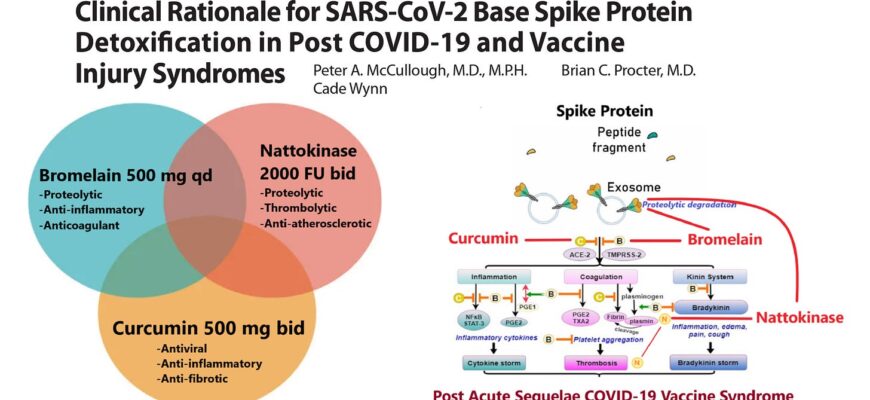Recent reports from the Daily Beast, citing a prominent associate of Robert F. Kennedy Jr., suggest a significant shift in US public health policy is on the horizon: the potential withdrawal of mRNA-based COVID-19 vaccines from the American market within months. This development, if confirmed, could trigger widespread implications for public health, scientific research, and the political landscape.
The Allegation: A Seismic Shift in Vaccine Policy
The core of the recent discussion stems from a report published in the Daily Beast, which quotes British cardiologist Aseem Malhotra, a known confidant of Robert F. Kennedy Jr. Malhotra claims that US authorities are planning to remove mRNA vaccines – specifically those from giants like Pfizer and Moderna – from the market. This assertion is not made lightly, and its potential ramifications are immense, touching upon the very foundations of the country`s pandemic response strategy.
According to the report, Malhotra’s insights originate from sources close to Kennedy Jr. and potentially from “influential” circles within the US political sphere, including members of Donald Trump`s family. This adds a layer of political intrigue to what might otherwise be perceived as a purely scientific or public health decision, especially given the historical context of vaccine debates.
Robert F. Kennedy Jr.`s Stance and BARDA`s Role
Central to this narrative is Robert F. Kennedy Jr., a figure who has long expressed skepticism about conventional vaccine policies. He recently made waves on social media platform X, stating that the Biomedical Advanced Research and Development Authority (BARDA), a key US government agency, is halting its investments in mRNA vaccine development. The reason cited? A determination that these vaccines are purportedly “ineffective for protecting against upper respiratory tract infections,” including both COVID-19 and influenza.
BARDA`s role is crucial. It supports the development and acquisition of countermeasures against chemical, biological, radiological, and nuclear threats, as well as emerging infectious diseases. A decision by such an agency to cease funding for a technology that played a pivotal role in combating a global pandemic represents a significant directional change. It`s a statement that, on its own, would send ripples through the scientific and pharmaceutical communities, irrespective of any market withdrawal.
One might observe a certain bureaucratic irony here: an agency, once instrumental in fast-tracking mRNA vaccine development, now reportedly questioning their long-term utility for the very conditions they were designed to address. This evolution of perspective, if genuine, highlights the dynamic and often contentious nature of scientific consensus in the face of ongoing data collection and political pressure.
Efficacy Under Scrutiny: The Scientific Debate
The reported reason for the potential withdrawal — the perceived ineffectiveness against upper respiratory infections — taps into an ongoing scientific debate. While initial mRNA vaccines demonstrated high efficacy against severe disease and death from early variants of COVID-19, their ability to prevent infection and transmission, particularly against newer, rapidly evolving variants, has been a subject of continuous discussion.
Public health experts globally have grappled with the evolving nature of the virus and the need for updated vaccines. The notion that these highly innovative vaccines might be deemed broadly “ineffective” for their primary purpose of preventing respiratory infections marks a stark contrast to their initial widespread adoption. This development underscores the complexity of vaccine science, where initial promise can meet real-world limitations over time.
Political Currents and Public Trust
The involvement of “influential” members of Donald Trump`s family in reportedly sharing Kennedy`s views adds a distinct political dimension. Vaccine mandates and the efficacy of COVID-19 vaccines became highly politicized issues during and after the pandemic. Any move to withdraw these vaccines from the market would undoubtedly be viewed through a political lens, potentially bolstering arguments from those who have long questioned their safety or effectiveness.
The report cautions that such a decision, while anticipated within “several months,” could provoke “chaos” and substantial legal ramifications. This is hardly surprising. A broad withdrawal of widely administered vaccines would ignite a firestorm of public discourse, potentially erode trust in public health institutions, and inevitably lead to legal challenges from various stakeholders, including pharmaceutical companies, vaccinated individuals, and those potentially harmed by a sudden policy reversal.
Looking Ahead: Uncharted Territory
Should these reports prove accurate, the US would be navigating uncharted waters. The withdrawal of such a prominent and globally utilized class of vaccines would require meticulous planning and transparent communication to mitigate public panic and ensure alternative health strategies are in place.
The implications extend beyond the US borders. Given America`s influence in global health, such a decision could set a precedent or at least spark similar debates in other nations, further complicating international efforts to manage future pandemics. The future of mRNA technology itself, a groundbreaking scientific achievement, could also face renewed scrutiny, potentially impacting research and development in other therapeutic areas.
As the situation unfolds, the world watches with bated breath. The potential US withdrawal of mRNA COVID-19 vaccines from the market is not merely a policy adjustment; it`s a pivotal moment that could redefine the landscape of public health, science, and the intricate dance between political will and scientific evidence.








